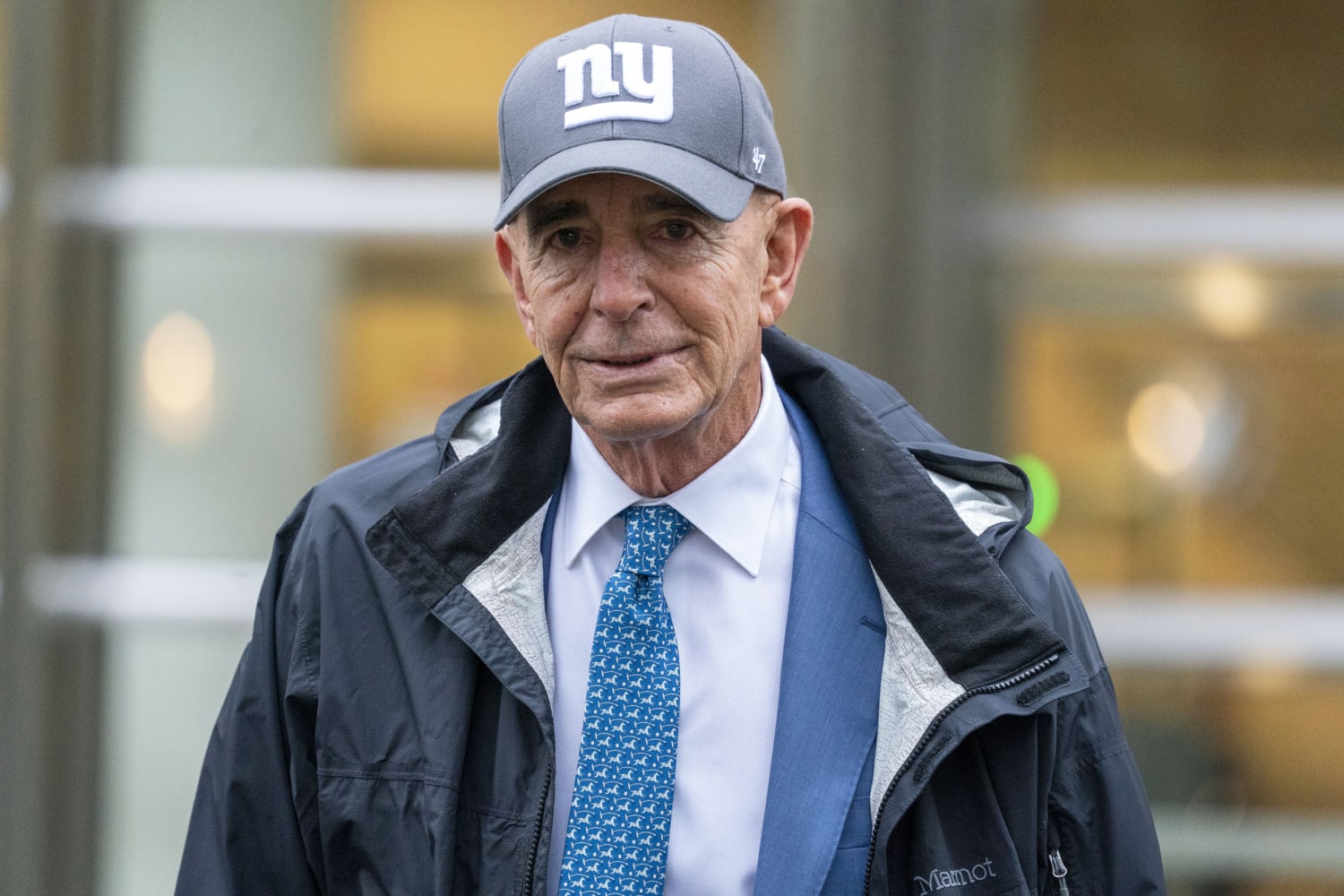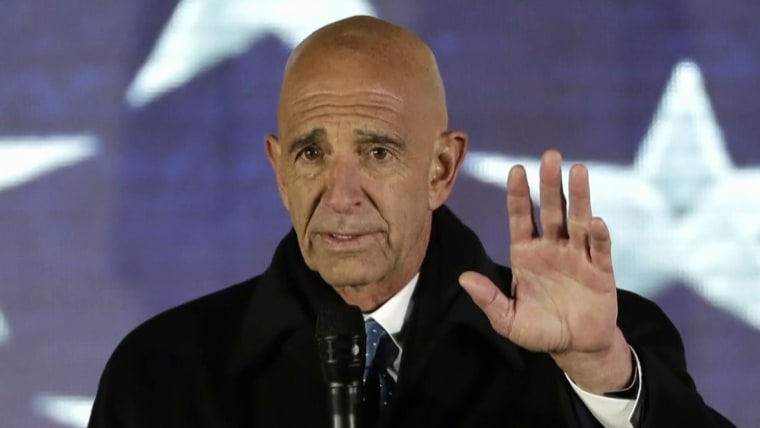Jurors are slated to begin deliberations in the trial of a longtime friend of Donald Trump who is accused of cashing in on his access to the former president by acting as an unregistered lobbyist for the United Arab Emirates.
Attorneys presented their closing arguments Tuesday after six weeks of testimony from witnesses such as former Secretary of State Rex Tillerson and former Treasury Secretary Steve Mnuchin, as well as five days of Barrack testifying from the stand in his own defense.
Barrack, 75, is charged with acting as an unregistered foreign agent, obstruction of justice and making false statements to the FBI. Prosecutors allege he used his decades-long friendship with Trump to “illegally provide” government officials from the UAE with access to — and information about — the president and top officials.
Prosecutors argued Tuesday that Barrack, who was chair of Trump’s inaugural committee, “lied and he lied and he lied again” to federal agents in order to hide that he’d been offering political access and inside information to the United Arab Emirates.
“Mr. Barrack traded his political access for a long-term relationship with top UAE officials,” assistant U.S. attorney Ryan Harris told jurors during his summation in federal court in Brooklyn, N.Y.. “In return, the UAE unlocked its purse strings.”
That arrangement, Harris argued, paid off for Barrack. The UAE, through sovereign wealth funds it controlled, invested $374 million with Barrack’s company, Colony Capital in 2017 and 2018, after not investing “a penny in the years beforehand,” Harris said.
When questioned by the FBI in 2019, Barrack repeatedly misled agents about his dealings with a man prosecutors said was his go-between with UAE officials because he knew what he’d done was “wrong,” Harris said.
Barrack’s attorney, Randall Jackson, countered that his client “didn’t lie about anything” to the FBI, and suggested that the agents’ recollection of the interview was inaccurate — both elements of what Jackson called a case filled with innuendo and “misdirection.”
Jackson told jurors that the government’s claim of overwhelming evidence against Barrack was “a joke,” and that there was “nothing nefarious” about his client’s dealings with Emirati officials.
“It is perfectly normal in business for a company to both try to cater to your business interests as well as your political interests,” Jackson said.
Jackson noted that when Barrack was being considered for an ambassadorship during the Trump administration, he filled out a federal form disclosing contacts with foreign officials in 147 countries, including the UAE.
Jackson also downplayed the UAE’s investments with Barrack’s company, calling it “less than one half of one percent of Colony’s balance sheet,” and saying it was on terms favorable to UAE fund, not to Colony.
“This whole prosecution has been an act of misdirection,” Jackson said, noting that Barrack repeatedly blew off several requests from the Emiratis, and supported Qatar within the Trump administration when the country was hit by a blockade by the UAE and Saudi Arabia.
Jackson further argued the government had no direct evidence that Barrack had struck a deal with the UAE.
The alleged scheme started during the 2016 presidential campaign and continued throughout Trump’s first year in office, and the bulk of the government’s case was built on emails and text messages obtained by investigators.
The messages showed Emirati officials giving feedback to Barrack about what he should say in TV interviews and providing input about what Trump should say about energy policy in a 2016 campaign speech. They also pressed Barrack for details about Trump’s likely picks for various high-level jobs, including CIA director and positions at the State and Defense departments.
Harris told the jury that prosecutors had showed them “hundreds of emails, text messages,” business and other records to prove “beyond a reasonable doubt” that Barrack and his assistant and co-defendant Matthew Grimes “acted at the direction of the UAE government.”
Grimes’ attorney, Abbe Lowell, disputed that his client was an unregistered foreign agent, saying he did what his boss Barrack told him to do, not what UAE officials requested. As for text messages showing a chummy relationship between Grimes and Rashid Al Malik, the alleged go-between, that was because “they were friends,” not because he was under his “direction and control,” Lowell said.
The jury is scheduled to begin its deliberations on Wednesday.
Source: | This article originally belongs to Nbcnews.com











